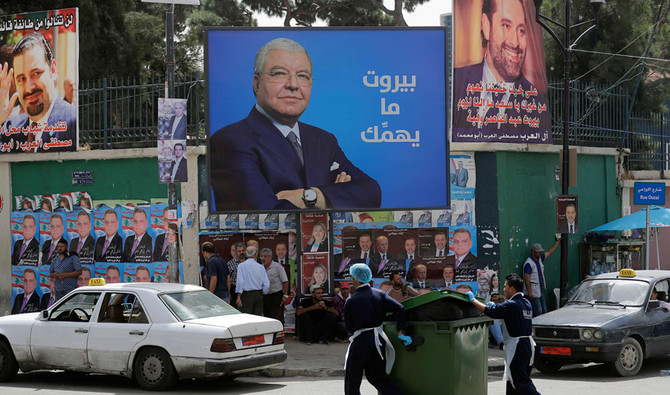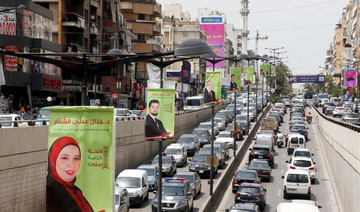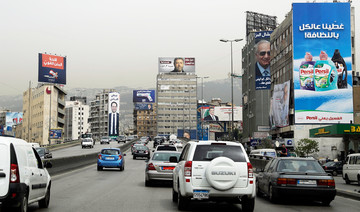BEIRUT: Local tensions flared between rival supporters in Lebanon amid rising campaign fever 48 hours before the elections.
Tensions were reflected in Friday sermons in Beirut that “urged the pollsters not to give the keys of the Lebanese capital to those not worthy of them.”
General Director of Islamic Endowments Sheikh Dr. Mohammed Anis Al-Arwadi said in his sermon that “Beirut will never be the fourth Arab capital they aspire to,” an indirect reference to Iran, and “We will not surrender Beirut to the Syrian tyrant,” referring to the Assad guardianship regime in Lebanon.
Sheikh Al-Arwadi added: “Ibn Al-Alqami handed over the keys of Baghdad to Hulago, as for us we will only give the keys of Beirut to Saad Hariri. The Fatimid Caliphate claimed that he wanted to rid Palestine of Crusader occupation to provoke the Ayyubids, so he handed the Levantine coast to Crusaders; we do not want another Fatimid Caliph nor another Al-Alqami, and maybe there is an Al-Alqami between us.”
Earlier this week, eight people were injured after a clash between Future Movement supporters and the pro-Syrian Islamic Charitable Projects Association (Al-Ahbash), which escalated into shooting.
The altercations spilled out to Burj Abi Haidar where supporters of Al-Ahbash attacked Future Movement’s campaign office, according to a press release issued by the Future Movement. An army patrol immediately attended the scene of the shooting and worked to contain the situation.
The two parties’ leaders acted quickly to calm their supporters, and a delegation from the Future Movement visited the Al-Ahbash campaign office in Tariq El-Jdideh.
Another clash took place between the supporters of the Future Movement and supporters of an opposite list backed by wealthy businessman Fouad Makhzoumi in Ras El-Nabeh, a few hours before Hariri’s visit to participate in Friday prayers in one of the mosques. The altercation broke out when Makhzoumi’s followers tried to hang up posters of him.
A Lebanese Ministry of Interior source told Arab News that that such tensions were expected until the end of the electoral process as a result of severe competition between the candidates. “The electoral law based on which the elections will take place gave rise to many sensitivities and clashes, but they are all under control and the security forces are fully mobilized,” he said.
Beirut’s streets and skyline turned into a huge billboard, with candidates’ posters fixed to private balconies, the walls of derelict buildings, the sides of bridges and the facades of skyscrapers, indicating the fierce competition among nine electoral lists.
Prime Minister Saad Hariri met Elena Valenciano, the chief observer of the EU Election Observation Mission, and the European Parliament delegation on Friday to discuss preparations for the elections on May 6.
About 30,000 soldiers and security officers will work as part of a joint national security plan set up by the Lebanese Army and the Internal Security Forces for the parliamentary polls.
Lebanese Defense Minister Yaacoub Sarraf called on all Lebanese to abide by instructions, requesting them to be vigilant and cooperative and refrain from falling victims to any friction or provocation that would subvert the democratic process.
The Lebanese Red Cross announced its readiness with the mobilization of its 46 centers, backed by 4 liaison and coordination rooms, 219 ambulances and 837 paramedics.





















